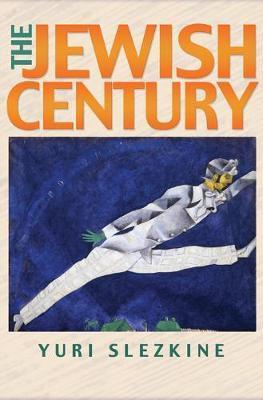Jewish Century

Jewish Century
Since no group has been more adept at Mercurianism than the Jews, he contends, these exemplary ancients are now model moderns. The book concentrates on the drama of the Russian Jews, including emigres and their offspring in America, Palestine, and the Soviet Union. But Slezkine has as much to say about the many faces of modernity--nationalism, socialism, capitalism, and liberalism--as he does about Jewry. Marxism and Freudianism, for example, sprang largely from the Jewish predicament, Slezkine notes, and both Soviet Bolshevism and American liberalism were affected in fundamental ways by the Jewish exodus from the Pale of Settlement. Rich in its insight, sweeping in its chronology, and fearless in its analysis, this sure-to-be-controversial work is an important contribution not only to Jewish and Russian history but to the history of Europe and America as well.
PRP: 269.73 Lei
Acesta este Pretul Recomandat de Producator. Pretul de vanzare al produsului este afisat mai jos.
242.76Lei
242.76Lei
269.73 LeiIndisponibil
Descrierea produsului
Since no group has been more adept at Mercurianism than the Jews, he contends, these exemplary ancients are now model moderns. The book concentrates on the drama of the Russian Jews, including emigres and their offspring in America, Palestine, and the Soviet Union. But Slezkine has as much to say about the many faces of modernity--nationalism, socialism, capitalism, and liberalism--as he does about Jewry. Marxism and Freudianism, for example, sprang largely from the Jewish predicament, Slezkine notes, and both Soviet Bolshevism and American liberalism were affected in fundamental ways by the Jewish exodus from the Pale of Settlement. Rich in its insight, sweeping in its chronology, and fearless in its analysis, this sure-to-be-controversial work is an important contribution not only to Jewish and Russian history but to the history of Europe and America as well.
Detaliile produsului








